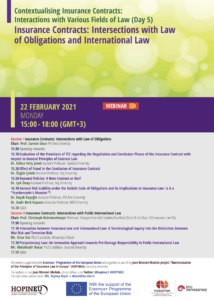Views
Nothing Found
Sorry, no posts matched your criteria
News
International Max Planck Research School for Successful Dispute Resolution in International Law – Call for Applications 2021
The International Max Planck Research School for Successful Dispute Resolution in International Law (IMPRS-SDR) is accepting applications for PhD proposals within the research areas of the Department of International Law and Dispute Resolution and the Department of European and Comparative Procedural Law to fill a total of
5 funded PhD positions
at the Max Planck Institute Luxembourg for International, European and Regulatory Procedural Law.
Selected PhD candidates will receive full-time research contracts of initially 2 years, with a possible extension of up to additional 2 years depending on the availability of funds, the student’s progress, and the Directors’ approval. In addition to being embedded in one of the vibrant Departments and its activities, the PhD candidates will be part of the IMPRS-SDR through which they will receive additional scholarly guidance and take part in events, such as doctoral seminars, master classes, and lectures. PhD candidates will benefit from the productive working environment within an international and creative team of researchers and have the opportunity to establish contacts and networks with all participating institutions as well as visiting academics and practitioners.
The deadline for application is 31 March 2021.
Additional information is available here.
For any questions with regard to the IMPRS-SDR and this Call for Applications, please contact:
Dr. Michalis Spyropoulos, IMPRS-SDR Coordinator, at: imprs-sdr@mpi.lu
The Max Planck Institute Luxembourg strives to ensure a workplace that embraces diversity and provides equal opportunities.
Series of seminars on Multilevel, Multiparty and Multisector Cross-Border Litigation in Europe – Jean Monnet Module – Università degli Studi – Milan
From March 3 to May 13, 2021, the University of Milan will host a series of webinars dealing with cross-border civil and commercial litigation in Europe, as part of the three-year project funded by the European Union and named “Jean Monnet Module on Multilevel, Multiparty and Multisector Cross-Border Litigation in Europe“.
The cycle of seminars will be divided into three modules, focusing, respectively, on relations and conflicts between national judges, European courts and international tribunals; on collective redress, addressed from a European, comparative and transnational perspective and in the context of different legal sectors; on the main procedural issues arising out of transnational litigation in financial law, IP law, labor law and family law disputes, as well as on the the current EU works on judicial cooperation and on the latter’s prospects after Brexit. A short module will provide participants with basic hints on written and oral legal advocacy.
The seminars, held by Italian and foreign experts with remarkable experience (not only academic, but also professional and institutional) in the sector, also due to their involvement in international research works and legislative reform projects coordinated by the European Commission, are aimed at Italian and foreign under- and post-graduate students, as well as professionals (the latter being entitled to continuing legal education credits).
To register (for the entire program or only for some modules), please fill in and submit, no later than Monday, March 1, 2021, the registration form retrievable here.
See here the Full Programme.



